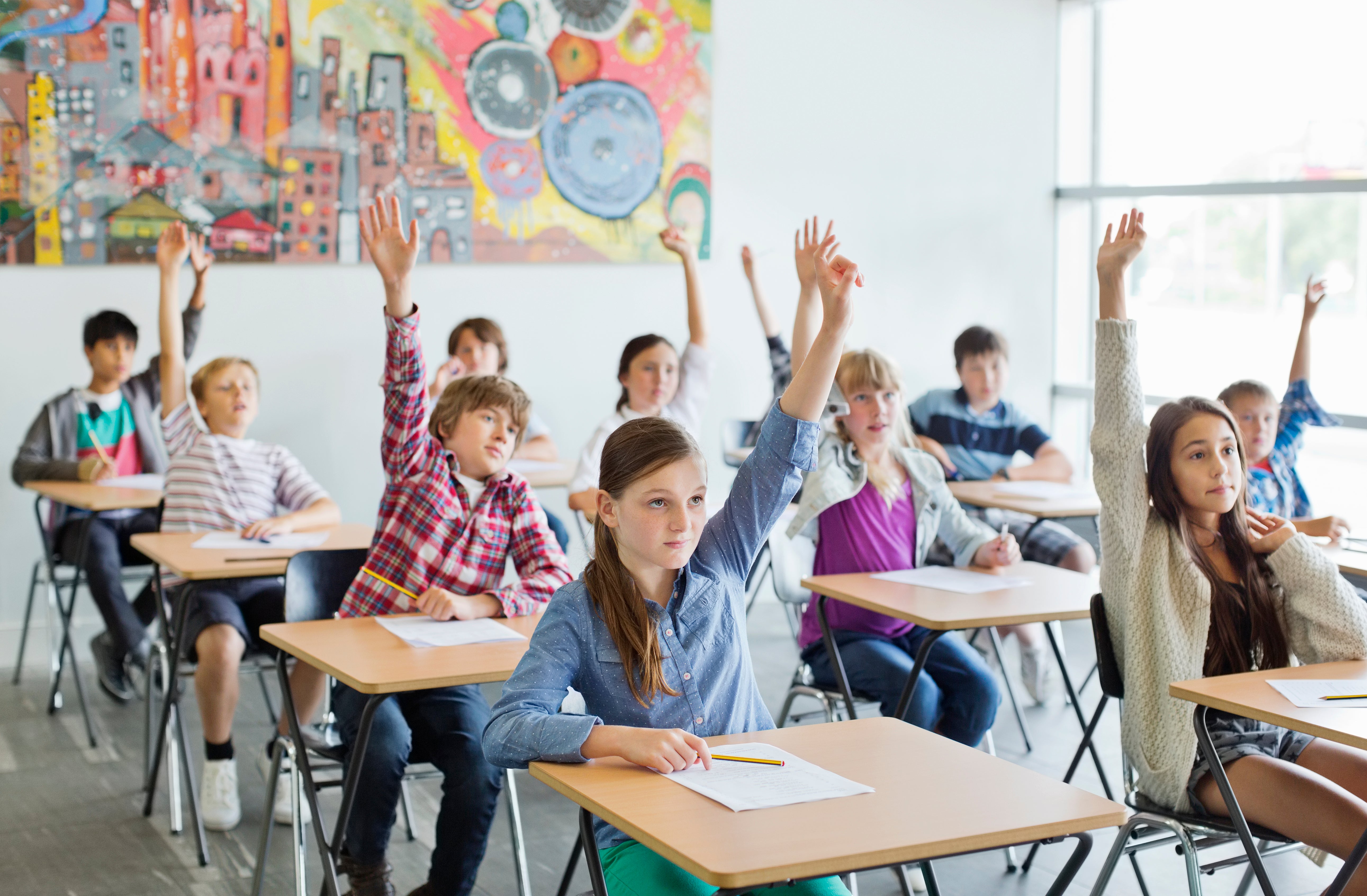Recognizing the Significance of Schools in Kid Growth and Area Development
Institutions' interaction with regional communities via service-learning initiatives strengthens the bond between family members and instructional institutions. This symbiotic connection emphasizes the importance of colleges in supporting energetic citizenship and long-lasting understanding behaviors.
Academic Success
Academic accomplishment acts as a foundation of youngster advancement, offering the foundation upon which future knowing and success are developed. Institutions play a pivotal duty in promoting this scholastic growth, using structured settings where children can get vital understanding and cognitive skills. Standardized curricula ensure that trainees gain efficiency in core subjects such as maths, scientific research, and language arts, which are critical for both higher education and learning and professional chances.
In enhancement to giving basic academic skills, colleges additionally cultivate crucial reasoning, analytic capabilities, and intellectual interest. These cognitive competencies are crucial for browsing intricate real-world scenarios and adapting to the ever-evolving needs of the contemporary office. Educators, as facilitators of discovering, employ varied pedagogical techniques to accommodate different learning designs, therefore optimizing specific pupil capacity.
In addition, academic success is closely linked to self-confidence and motivation. Children that experience academic achievements are extra likely to establish a positive self-concept and a long-lasting interest for understanding. Institutions also use various resources, such as libraries and technology, which even more improve the instructional experience and prepare trainees for a technically advanced culture.
Social Ability Development
Beyond academic achievement, the role of institutions in social skill growth is important. Schools function as a primary place for children to discover and practice necessary social abilities such as conflict, collaboration, and interaction resolution. In the structured atmosphere of a class, pupils interact with peers, teachers, and other school team, providing countless opportunities to create these crucial capabilities.
Reliable social ability growth in institutions is helped with with group activities, joint projects, and extracurricular programs. These communications aid students recognize social standards, construct empathy, and cultivate a feeling of community. For example, group projects show students exactly how to collaborate towards an usual goal, listen to different point of views, and browse arguments constructively.

The farming of social abilities throughout college years lays a foundation for future personal and specialist connections. Save Temecula Schools. As pupils grow, the capability to successfully interact and work together comes to be significantly important, emphasizing the college's vital function in alternative youngster development
Exposure to Diversity
Exposure to diversity in schools is essential to promoting a comprehensive attitude and expanding trainees' point of views. Schools serve as a microcosm of the more comprehensive culture, and experiencing varied cultures, languages, and socioeconomic histories within this atmosphere gears up trainees with necessary abilities for browsing an increasingly globalized globe. This direct exposure encourages empathy, lowers prejudices, and promotes common respect among peers.
Research shows that trainees that communicate with peers from different histories display much better analytical abilities and creative thinking. This understanding of diversity prepares pupils for future offices that value modern proficiency - Save Temecula Schools.

Area Involvement
The benefits of diverse classrooms extend beyond the college wall surfaces, cultivating a strong sense of area interaction amongst pupils. By connecting with peers from various cultural, socioeconomic, and ethnic backgrounds, try this web-site trainees obtain a wider point of view and a gratitude for variety. This direct exposure motivates them to become active people who are willing to contribute positively to their areas.
Schools that stress neighborhood engagement typically integrate service-learning tasks, which allow students to resolve real-world problems while applying scholastic skills. These tasks not only improve trainees' understanding of their coursework but likewise impart a sense of responsibility and empathy. Moreover, partnerships in between schools and regional organizations offer pupils with possibilities to take part in area occasions, even more solidifying their function as proactive neighborhood members.
Furthermore, adult and area participation in institutions strengthens the bond between academic institutions and the neighborhoods they offer. Via these efforts, institutions play a crucial function in supporting community involvement and fostering societal growth.
Lifelong Learning Behaviors
Developing long-lasting understanding behaviors is vital for a kid's continuous development and versatility in an ever-changing world. Colleges play a crucial role in instilling these behaviors by developing an atmosphere that cultivates inquisitiveness, important thinking, and a love for understanding. Via extracurricular tasks and varied curricula, educators urge pupils to check out various topics, evaluate info critically, and use their discovering to real-world circumstances.

Moreover, colleges supply a structured setting where youngsters can create self-control and time management skills, both of which are critical for continuous learning. By stressing the value of establishing objectives, showing on development, and adapting methods, schools prepare pupils to navigate the intricacies of grown-up life, guaranteeing they stay lifelong students and contributors to culture.
Final Thought
In final thought, Recommended Reading colleges are essential in promoting youngster advancement and area development by giving settings for scholastic achievement, social ability growth, and direct exposure to variety. Through joint jobs and interactions, colleges improve essential reasoning, empathy, and interaction skills. Community involvement initiatives better enhance the bond between universities and neighborhood communities. Ultimately, institutions cultivate lifelong knowing practices, outfitting individuals with the essential understanding and skills to contribute positively to society.
In the structured atmosphere of a classroom, trainees communicate with peers, educators, and various other institution staff, supplying various opportunities to establish these essential abilities.
In essence, exposure to diversity within schools not only enriches private trainees yet also strengthens the social fabric of the community as a whole.
The advantages of varied class prolong past the college wall surfaces, promoting a strong feeling of area interaction amongst students.Schools that highlight neighborhood involvement commonly include service-learning tasks, which permit trainees to attend to real-world problems while applying scholastic skills. Collaborations in between colleges and local companies offer trainees with opportunities to participate in community occasions, even more strengthening their duty as positive neighborhood members.